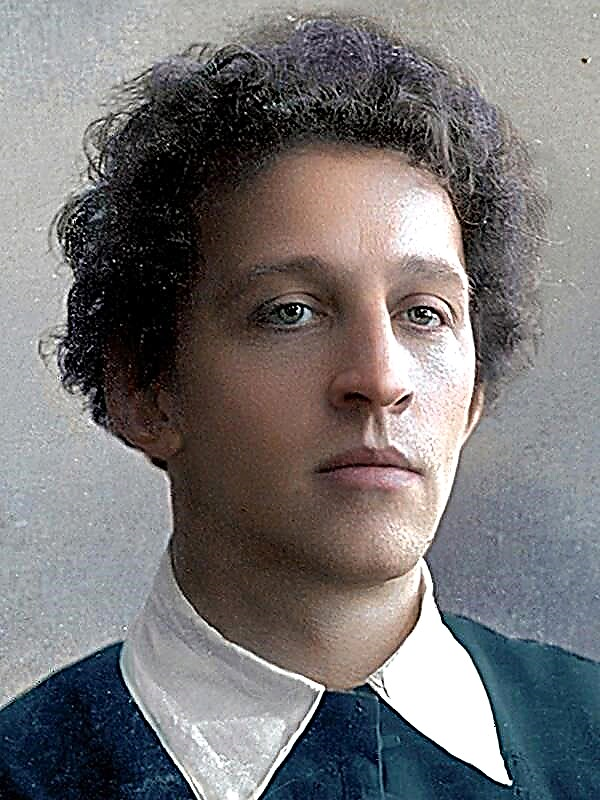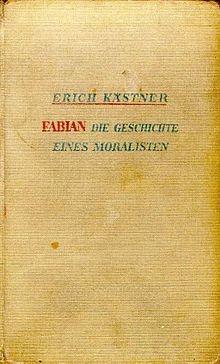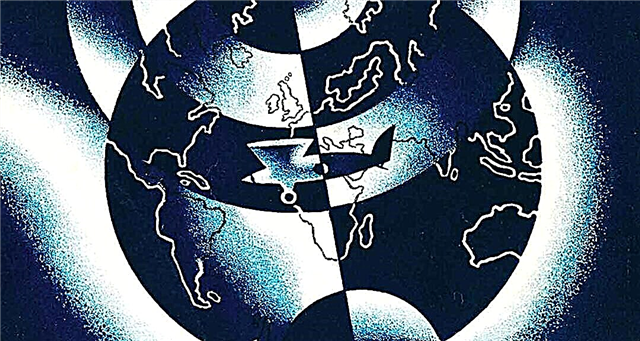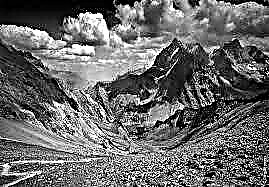Mikhail Yurievich Lermontov is a famous Russian poet. More than 170 years have passed since his death. And the works still resonate in the hearts of people. His work lives in performances, films, books. At school, students read out the immortal novel “Hero of Our Time”. Although teachers read this work every year, they still discover something new. The life of Mikhail Lermontov made a great contribution to the development of Russian literature.
Origin and formation
Birth and childhood
The poet came from a wealthy family. My maternal grandfather, Mikhail Vasilievich Arseniev, a retired lieutenant of the guard, married Elizabeth from the powerful and wealthy Stolypin family. In marriage, they acquired the village of Tarkhany. The father of Elizabeth Stolypin for several years was elected Penza provincial leader of the nobility.
But the father of the famous poet, Yuri Petrovich Lermontov, could not boast of origin, he really did not have money and influence in society. He retired with the rank of infantry captain. Maria Mikhailovna Arsenyeva, the writer’s mother, married against the will of her parents, out of love. But the spouse did not live up to expectations, drank and spent the dowry on women of easy virtue, so the couple’s joint life did not work out. The writer was born in Moscow in 1814. His birth did not correct the tense situation in the family. Already at four years old, the boy experienced great grief. His mother died. Grandmother Elizabeth Arsenyeva took up Michael's upbringing. The child spent all his childhood in the Penza province in the village of Tarkhany. The father received a generous compensation and did not interfere in the upbringing of the child at the request of the mother-in-law. The boy was very painful and frail, so an elderly woman was constantly engaged in his health, limiting the activity of his grandson and vigilantly monitoring him.
Youth and education
The young man in 1828 entered the Noble boarding house at Moscow University. Later he studied at the moral and political faculty, but did not graduate from it. Mikhail Yuryevich had a desire to leave to study at St. Petersburg University. But he couldn’t do it.
As a result, the poet studied at the school of guards cadets and ensigns, where life introduced him to his future executioner - Nikolai Martynov. In 1834, Mikhail was sent to serve in the Hussar Regiment.
History of success
First work
The early work of the poet is based on the works of Alexander Pushkin: the poems "Circassians" and "Prisoner of the Caucasus."
The beginning of the journey, Mikhail Yurievich considered 1828. That year, the poems “Autumn”, “The Fallacy of Cupid”, “Poet” were written. The author began with a description of nature, then became interested in love and rebellious lyrics, and at the end of his life he paid more attention to philosophical topics and civic motives.
Confession
Lermontov was very interested in the work of Alexander Sergeyevich. He did not think that he would take for himself a piece of the fate of the great poet. Even fame touched Lermontov, when people heard the poem dedicated to the sun of Russian poetry, "On the death of the poet." This work shocked secular society. Details from this period of his life we described here.
Lermontov, like a warrior, came to Russian literature. Therefore, his creative world teaches readers to reject any obstacles and strictly treats himself. The poet’s lyrical hero stands at the crossroads between the real and the ideal world. His rebellious disposition is often immersed in dreams.
The story of the poet Lermontov began not only with recognition, but also with punishment: for freethinking lines he was sent into exile.
Personal life
Varvara Lopukhina
All the poet's life was accompanied by an unhappy love for Varvara Lopukhina. Varya came from an old family. The writer met a girl on the way to Simonov’s monastery for the all-night service. Lopukhina was the sister of his friend Alexei. Lermontov fell in love with her character. Barbara was a cheerful, sociable and smiling girl, a wonderful muse. The mutual feeling gave the young poet inspiration, but, unfortunately, the paths of lovers did not merge into one.
Rumors broke the crystal and pure love of the young. In 1832, Mikhail went to St. Petersburg to study at the cadet school. New life overshadowed the image dear to the heart of Barbara. The girl heard stories about Lermontov’s stormy and passionate romance with Sushkova. Lopukhina decided on a desperate step - she married at the request of her parents for not young, but rich Bekhmetov. Parents were sure that the daughter pulled out a lottery ticket into life - a happy marriage. But they were mistaken. Their daughter never found out what family happiness is, which all ladies dream of. Behmetov’s jealousy knew no bounds, so Lopukhina was like a titmouse in a cage.
The poet regarded the wedding of his beloved as a betrayal. Michael was jealous of Barbara, but could not do anything. He suffered, but a time ago could not be returned. The pain of the soul remained only on paper. Life tragedy changed the character of the young man. In the Caucasus, he dedicated poems to Lopukhina-Behmetova, painted her portraits. Over time, Lermontov's zealous selfish love gave way to merciful. The poet was happy that he knew such a beautiful girl. He did not blame her, but wished only good.
Ekaterina Sushkova
The author’s heart belonged to Lopukhina, but there were other women in his life too. Mikhail really liked Sushkova. She was an orphan, so her aunt was engaged in her upbringing. Catherine had a girlfriend, Alexander Vereshchagin. She has a young lady in her house and met a writer.
Lermontov dedicated his beloved "Sushkovsky cycle" of eleven poems. Catherine sneered at the bright youthful feelings. Four years later, their paths crossed in St. Petersburg. Even then, Mikhail became an officer in the Life Guards of the Hussar Regiment. And the beautiful Ekaterina flirted with men, but was going to marry Alexei Lopukhin. The poet's love for Sushkova grew into an insult and a desire for revenge. The poet fell in love with an almost married lady, tore off her wedding. He inspired her hope for a happy future together, and then broke up with her.
Other women of Lermontov left a not so deep mark in his life and work, so we just say that his love story did not end in a happy ending: he was not married, he died young. He had no children.
Interesting Facts
- In 1840, the only lifetime edition of Lermontov’s works was published. Censorship forbade the publication of many of his works.
- The midwife looked at the newborn Misha and said that he would not die by his own death.
- People learned about the duel of Martynov and Lermontov. They thought that Nikolai would be killed because he was oblique and shot poorly. But it was not in a duel with the famous poet that he missed. It is not surprising, because Mikhail Yurievich constantly ridiculed him in society, and a friend had a grudge for a long time.
- Lermontov was an interesting poet, an excellent artist, and knew mathematics well.
- Mikhail is the second cousin of Peter Arkadyevich Stolypin, the famous reformer.
- Mikhail Yuryevich had a terrible character: he was a gall joker, a cynic and a reserved person. He hated service, but he couldn’t find another occupation either.
- Lermontov was very offended by his grandmother because she forbade them to see her father.
Creation
Lermontov's image in the lyrics
The image of the poet in the lyrics is tragic. He has lost faith in the fulfillment of his dream of an ideal. Mikhail Yuryevich in his poems as if trying to break through the wall of misunderstanding between himself and the world.
His lyrical hero is a rebellious and underrated person. He most often complains to women, because in life a man lacked their attention. He associates himself with a beggar, a hermit, a wanderer, etc. In each protagonist of Lermontov's works, we see features of the author himself. Mtsyri's unhappy childhood echoes the fate of Mikhail Yuryevich himself, separated from his father. In the character of Pechorin we see the same uncertainty of goals and objectives, the same neglect of women, the same fatal wit as that of the writer.
Main themes
The poet in his work touches on various topics: loneliness, homeland, the relationship of the crowd and the poet, love, etc. The first two topics are common. The poet raises the topic of loneliness in poems: “Sail”, “Prisoner”, “Loneliness”, “Both Boring and Sad” and in many others. Lermontov always considered himself a stranger in any company. He was not understood and accepted by society.
The theme of the motherland is found in the works: "Farewell, unwashed Russia", "Borodino", "I ran through the countries of Russia." The poet revealed this topic through the struggle for freedom with the slave chains of the autocracy or through confrontation with the real invader of his native land.
Death
Mikhail Yuryevich Lermontov could not even imagine that he had known his executioner for a long time. Nikolai Martynov is a close friend and killer. The death of the poet is a mystery, because there are many versions. One of the causes of death is the poet’s very caustic language. He knew the weaknesses of his surroundings. Once Lermontov decided to play a trick on Martynov. He called him “a man with a dagger”, “highlander”, painted caricatures, people laughed for a long time. But Michael did not even mean that a wicked joke would be the beginning of the end of life. Martynov asked not to joke with the ladies, but Lermontov continued. After that, Nikolai set the date for the fight, but none of those around took this statement seriously. Michael could have made peace with a longtime friend, but for some reason he did not dare to take this step. They tried to dissuade Nikolai Solomovich from the duel, but the mood was decisive. Lermontov’s friends thought that the match would end with reconciliation. Even the conditions were violated: there was no doctor, there were no distributed seconds, there were spectators. Martynov was afraid of the ridicule of society, so he shot in the chest, once and for all.
The famous poet died instantly after being injured. He was buried on July 17 at the Pyatigorsk cemetery. Grandmother cursed with the authorities to give permission for the burial of the body in Tarkhany. There he was buried after 250 days.

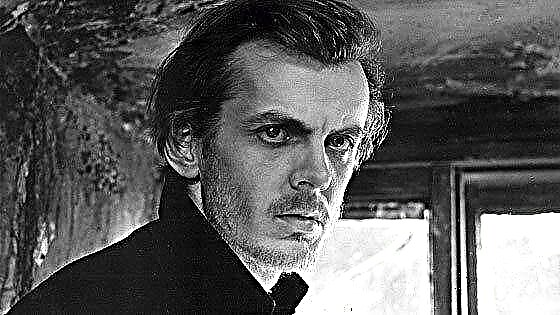
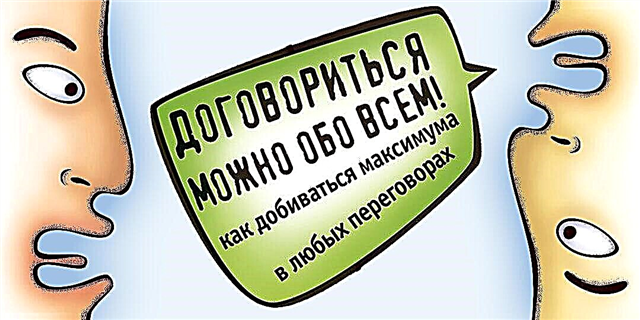 You can agree on everything.
You can agree on everything.


